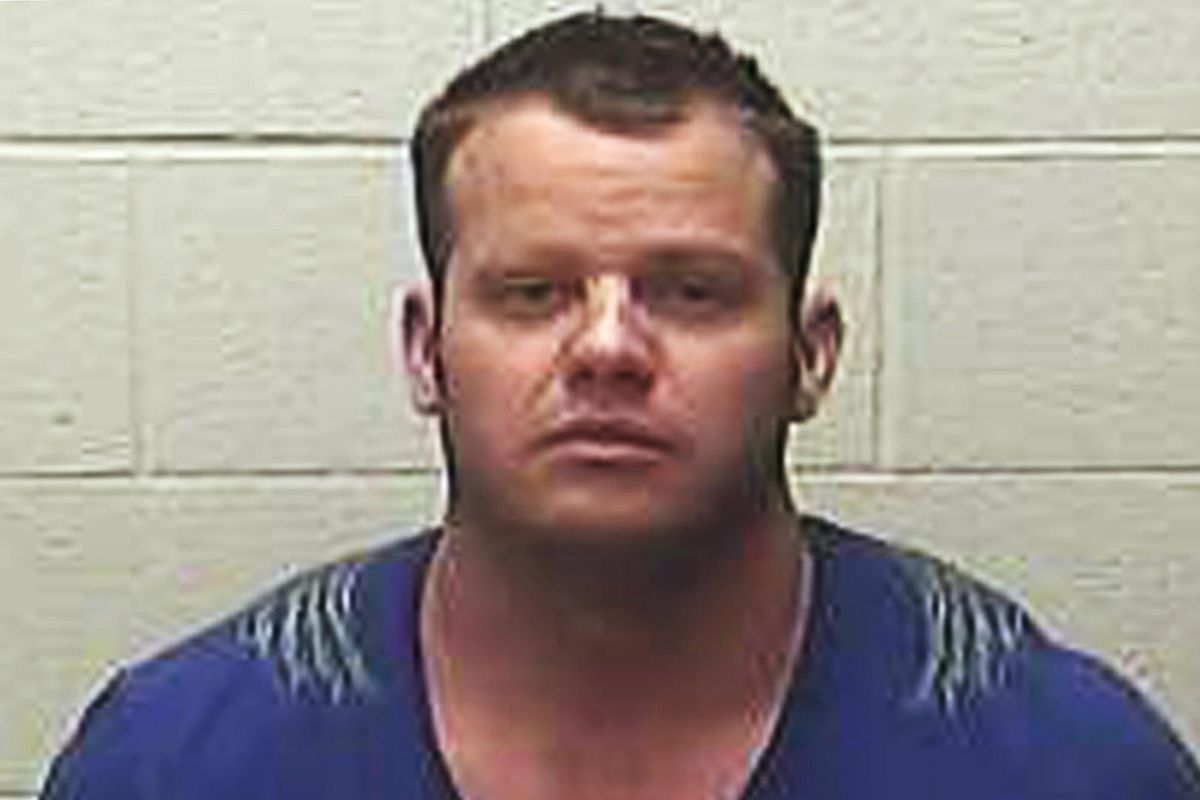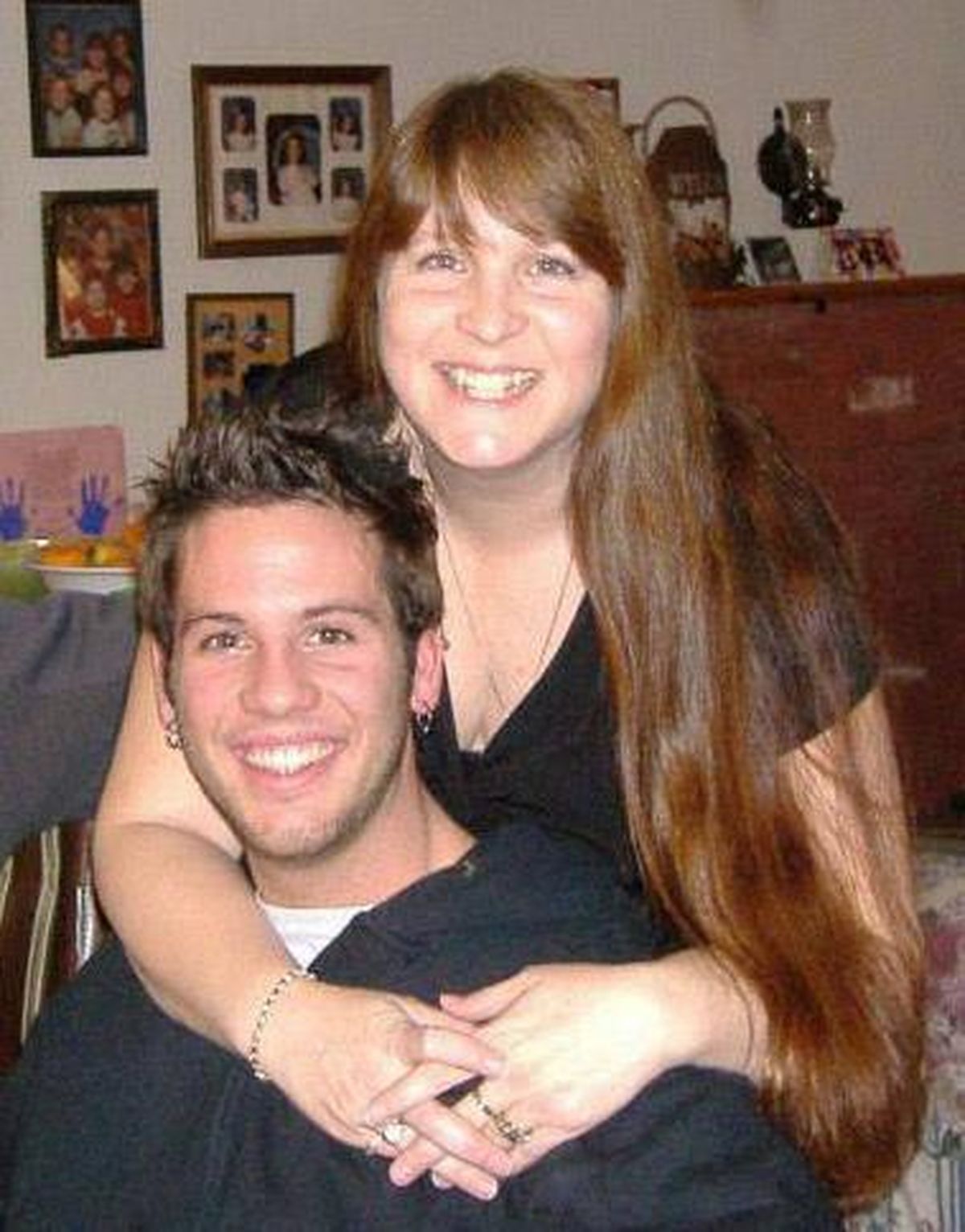Mother of missing son wants to face Henrikson as murder-for-hire trial begins
James Henrikson (Associated Press)
Jill Williams wants to look in the eye of the man she and federal authorities believe is responsible for killing her son.
“I just feel like I need to be there to face the people that did this,” Williams said last week.
The Buckley, Washington, mother may not get that chance, because of snow and ice in the mountains between her and the trial of James Henrikson, scheduled to begin Monday in Richland. What’s more, she’s relying on the charity of friends and family to get her to the federal building there after she was forced to file for bankruptcy to fight a defamation lawsuit brought by Henrikson and his wife.
Even if she makes it to Richland, the trial isn’t likely to bring Williams closure. Her son, Kristopher Clarke, has never been found.
Henrikson is charged with murder-for-hire for allegedly orchestrating Clarke’s death and that of Spokane businessman Doug Carlile in his South Hill home in December 2013.
That alleged crime brought forth an admission from the triggerman in Carlile’s death, Timothy Suckow, that he had struck Clarke’s head with a floor jack handle until it “went soft” the last day the 29-year-old was seen alive. Suckow has since pleaded guilty to his role in Carlile’s death and is expected to testify against Henrikson.
Begging for news of her son
Williams set up a Facebook page in May 2012 called “Find kc-gimpdaddy,” after her son disappeared in the oil fields of western North Dakota. The title referenced Clarke’s nickname, “Gimp Daddy,” following a motorcycle racing crash that left him with a limp caused by multiple metal screws in his heel.
“Both of his legs were horribly broken,” Williams said. “He wasn’t supposed to walk again.”
Through hundreds of posts, Williams begged for news of her son and, eventually, for the location of his body. She sometimes mentioned Henrikson and his wife, Sarah Creveling, by name, posting warnings about their business practices and tying Henrikson to Clarke’s February 2012 disappearance.
Henrikson and Creveling accused Williams of defamation in a lawsuit filed in Pierce County in July 2013. Williams filed for bankruptcy protection on Dec. 7, 2013, eight days before Carlile was shot seven times in his South Hill home.
The Facebook posts were enough for Henrikson and Creveling to claim Williams was harming their trucking business and turning the Fort Berthold, North Dakota, oil drilling community against them.
“I do not know where Mr. Clarke is,” Henrikson wrote in a declaration included in the defamation lawsuit. “I have nothing to do with Mr. Clarke’s disappearance and I am not a suspect. I have never threatened physical harm to Ms. Williams. The defendant has ruined my name.”
The bankruptcy caused the defamation lawsuit to be thrown out. Williams didn’t have to pay a settlement, but her finances are in shambles because of legal bills, she said.
“He has really, really made life hard,” she said of Henrikson.
Trial moved due to publicity
Within a month of Carlile’s death, Spokane police detectives and federal authorities arrested Suckow and Henrikson, alleging the two men had conspired to kill Carlile. By September 2014, four other men were indicted by a Spokane grand jury in alleged plots to kill multiple men, including Clarke.
The allegations contained in court documents include marathon train rides between Spokane and Williston, North Dakota, and a meeting at an Arby’s restaurant where Henrikson gauged Suckow’s willingness to kill for money.
Henrikson, whose criminal past includes federal convictions for drug charges and illegal firearm ownership, is the only defendant who will stand trial in the alleged conspiracies to kill.
Suckow, Robert Delao, Todd Bates, Robby Wahrer and Lazaro Pesina all pleaded guilty to charges and are expected to testify in Henrikson’s trial, which will last four to six weeks. Henrikson faces a potential life sentence if found guilty.
His defense attorneys, Mark Vovos and Todd Maybrown, successfully petitioned to move the trial to Richland because of extensive media coverage of Carlile’s death in Spokane.
The case prompted an article in the New York Times examining Henrikson’s ties to oil company Maheshu Energy and its chief executive, Tex Hall, former tribal chairman of the Mandan, Hidatsa and Arikara Nation.
Hall and his daughter, who allegedly gave birth to a child fathered by Henrikson, also may testify.
Several members of the Carlile family may take the stand as well. Defense attorneys signaled in trial briefs they will question the credibility of Carlile’s sons, who said their father came to them in fear days before his death because of Henrikson. One of the sons lent his father a gun.
Williams fearful after Carlile’s death
For Williams, the looming trial brings back the memories of nearly four years waiting for her son to come home. She said she lived in fear after Carlile’s death, sweeping her home before she allowed her daughter and her young grandson to enter.
“We went through a lot,” she said.
She’s returned to her Facebook page to ask for financial support, and to look back through pictures of her grinning son, either outfitted in a racing uniform or among friends and family at holiday gatherings. Williams said her son followed a girlfriend to Texas, then moved to North Dakota when the relationship ended to work for Henrikson.
“He had that smile,” Williams said of her son. “He turned that smile on and he could just charm anybody. But not in a bad way. He wasn’t one of those people that was just trying to get something out of you.”
Williams said she’d like to be there for Suckow’s testimony so she can hear in his words what he told authorities he did to her son. But her focus is on confronting Henrikson.
“I’d like to face James, if he has the guts to look at me,” she said. “I’d like to look him in the eye.”

